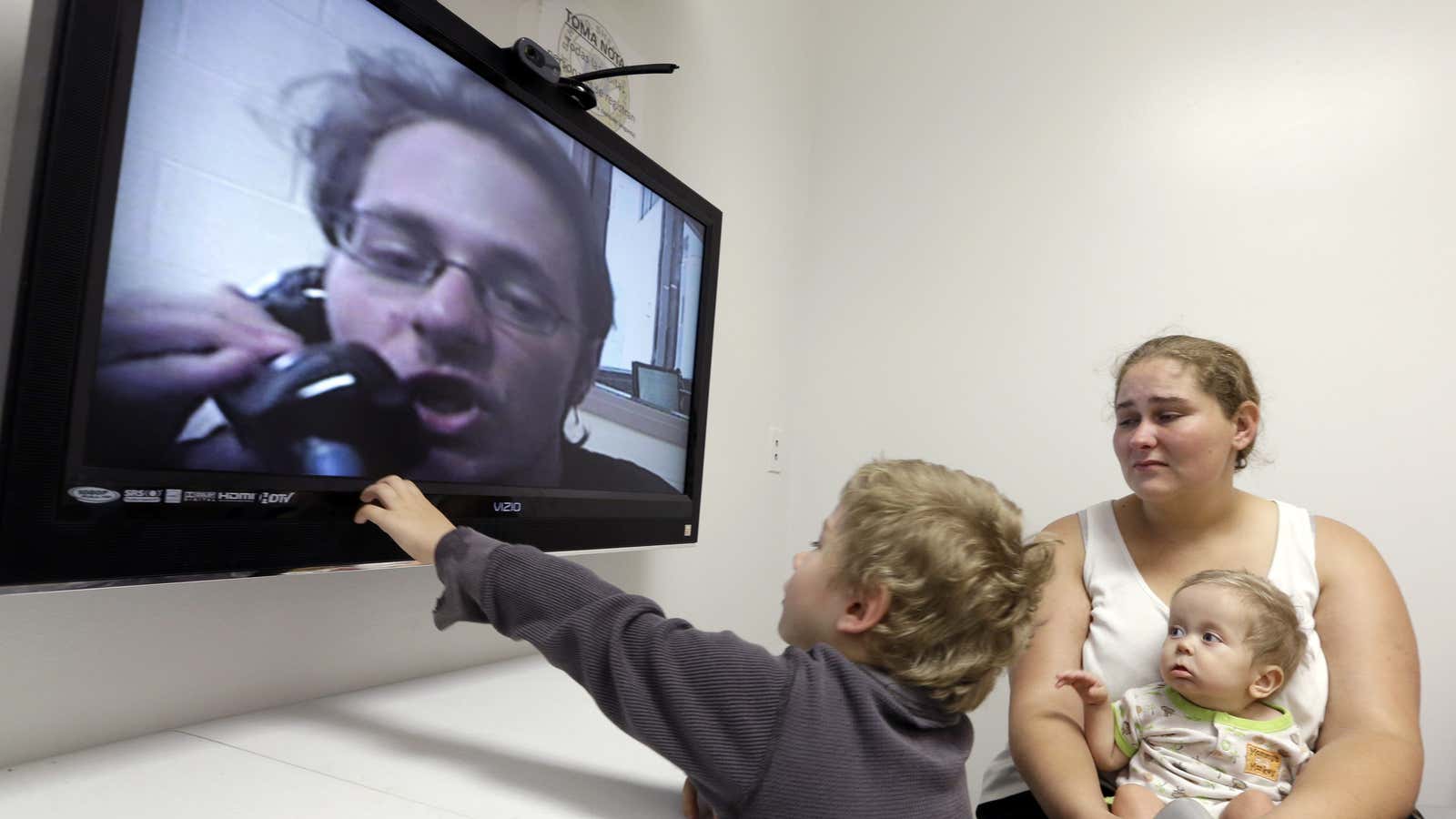In many counties across the US, jail inmates are forbidden from seeing their loved ones in person, all because of a technological innovation many people in the outside world use on a daily basis. When some jails implement systems that allow video calls between those behind bars and their families, they eliminate face-to-face visitation to save costs and increase security.
This policy has been decried by advocates, experts and families. A bill to prohibit the practice, requiring all county jails provide in-person visits passed the California legislature in August and is waiting for governor Jerry Brown’s signature, due Sept.30.
As Quartz reported last year, although video visitation could be a way to strengthen ties between an inmate and their family, the way it is implemented in the US introduces a number of problems. Banning in-person visitation takes a huge toll on the inmates themselves — and decreases their chances of success once they are outside jail or prison walls. It also is a huge burden on their families, who are forced to pay exorbitant fees for even a short video phone call. Video calls from prisons are routed through private prison communications companies that unlike Skype aren’t free and can cost $1.50 a minute.
“Video visitation is a rare example of a technology being used to separate, rather than connect, people,” said Bernadette Rabuy of the Prison Policy Initiative.
Passage of the California law is significant because of the lengths of sentences of those held in the state’s jails. After California was ordered by the Supreme Court in 2011 to significantly reduce the number of inmates in its overcrowded state prisons, many of them were transferred to county jails. These former prison inmates have long sentences which they are now serving in county jails, so they can be deprived of face-to-face visits from their loved ones for years, even decades.
Although the bill was passed with bipartisan support, some GOP lawmakers argued that cutting costs was more important than in-person visits. ”That is the penalty for continuing to victimize their fellow citizens,” said state Sen. Jim Nielsen during a debate in late August.
A similar law to California’s SB 1157 was implemented last year in Texas, where many jails had banned in-person visits–although certain Texas counties received exemptions from the requirement to provide face-to-face visitation.




